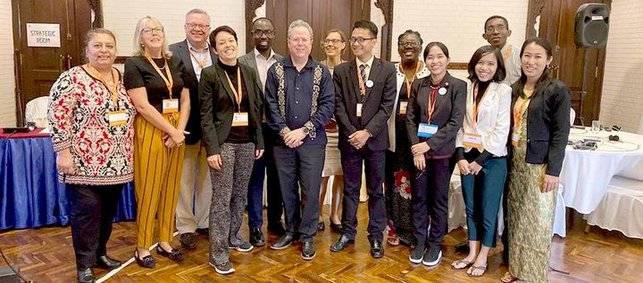Despite abundant scientific knowledge about best practices to prevent or ameliorate the most pressing malnutrition problems, low, middle and high-income countries often fail substantially to scale up effective programs as result of lack of evidence-informed systems, appropriate policy tools and sustainable implementation.
Ending malnutrition depends on delivering integrated programs generated and implemented through evidence-informed advocacy, political will, legislation & policy, funding & cost, effective implementation of programs, behavior-change communication campaigns, monitoring & evaluation, and strategic coordination.
This workshop at this year's SUN Global Gathering from 5-7 November in Kathmandu, Nepal, aimed to highlight and share experiences from a comprehensive scientific participatory approach in the area of scaling up breastfeeding (bbf.yale.edu) recently implemented by 8 countries across 5 world regions, including Ghana, Myanmar and Germany. The participants were enabled to develop strategic scaling up plans for their national contexts.
Presentations
Theory, Impact, Pathways and Application of the BBF Policy toolbox
Professor Rafael Pérez-Escamilla, PhD
Yale School of Public Health, USA
Becoming Breastfeeding Friendly. Lessons for scale-up
Professor Richmond Aryeetey
School of Public Health
University of Ghana, Legon, Ghana
Dr. LwinMar Hlaing
Acting Director (National Nutrition Center)
Department of Public Health, Ministry of Health and Sports, Myanmar
Maria Flothkoetter
Head of Healthy Start Network
at Federal Office for Agriculture and Food, Germany


